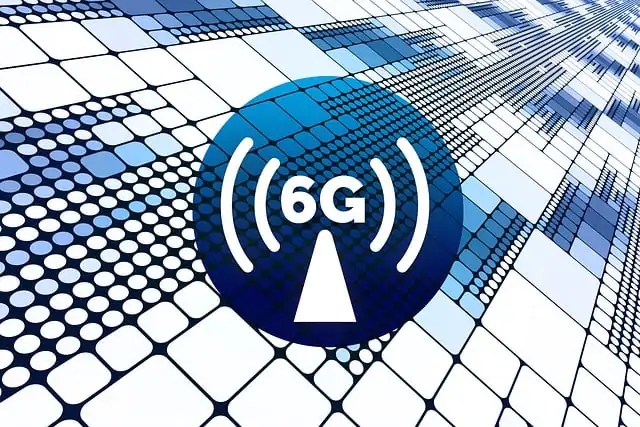Introduction:
Which Country Has 6G Network Now
In today’s fast paced world, there is an increasing demand for faster and more reliable internet connectivity. With the introduction of 5G technology, which promises unprecedented speeds and low latency, the question on everyone’s mind is: “Which country has 6G network now? “In this article, we will explore the fascinating realm of 6G technology, examining the current state of affairs and spotlighting the leaders driving the advancement of 6G networks. Get ready to embark on a journey that will shape the future of connectivity.
What is 6G Technology?
Before we go into detail about the countries leading the 6G revolution, let us first understand what 6G technology involves. 6G, also known as sixth generation wireless technology, represents the next significant leap in mobile network connectivity. It is envisioned to be several times faster than 5G, with speeds reaching up to 100 times that of its predecessor. In addition, 6G is expected to provide unparalleled reliability, ultra-low latency, and support for a large number of connected devices simultaneously.
Which Country Has 6G Network Now?
As of the time of writing, no country has fully deployed 6G networks. However, many countries are actively investing in research and development to establish themselves as leaders in the 6G sector. Let’s explore some of these countries and their initiatives towards achieving 6G dominance:
1. United States
The United States, known for its technological prowess, is making significant progress in the development of 6G networks. The country’s leading research institutes and telecom companies are collaborating to spur innovation and push the boundaries of wireless connectivity. Companies such as Google, Microsoft, and Qualcomm are investing heavily in research and development to propel the United States to the forefront of 6G technology.
2. China
China, renowned for its progress in the telecommunications industry, is determined to maintain its global leadership in connectivity. Chinese companies such as Huawei and ZTE are actively involved in 6G research and development, aiming to lead the deployment of 6G networks around the world. With its vast resources and ambitious goals, China has the potential to emerge as a dominant force in the 6G landscape.
3. South Korea
South Korea, often touted as a technology powerhouse, is making significant progress in the race for 6G. The country’s government and telecommunications companies have joined forces to invest in research, development and infrastructure to position South Korea as an early adopter of 6G technology. With its history of successful network deployment, South Korea is well positioned to play a leading role in 6G implementation.
4. Japan
Japan, known for its technological innovation, is actively engaged in the development of 6G networks. Japanese companies such as NTT DoCoMo and NEC Corporation are at the forefront of 6G research, striving to bring the next generation of wireless connectivity to the world. The Japanese government has also allocated significant funding to support research initiatives, indicating its commitment to advancing 6G technology.
Conclusion
While the world eagerly awaits the arrival of 6G networks, several countries are vying to lead the opportunity. The United States, China, South Korea and Japan are at the forefront of the race to establish themselves as 6G leaders. As the development and deployment of 6G technology progresses, we can expect unprecedented advances that will shape the future of connectivity and revolutionize industries around the world. The journey towards 6G is exciting, full of opportunities and challenges that will pave the way for a new era of connectivity.
Frequently Asked Questions (FAQs)
What is the timeline for the deployment of 6G networks?
The timeline for the deployment of 6G networks is still uncertain. While researchers and industry experts anticipate initial deployments as early as the late 2020s, widespread adoption may take several more years. The development and standardization processes for 6G are complex and require extensive testing to ensure seamless integration with existing technologies.
How will 6G technology benefit consumers?
6G technology holds immense potential to transform various industries and enhance the lives of consumers. With ultra-fast speeds and minimal latency, 6G will enable seamless augmented reality (AR) and virtual reality (VR) experiences, revolutionize autonomous vehicles, empower smart cities, and enable advanced healthcare applications. Additionally, 6G will pave the way for innovative technologies we can only dream of today.
Will 6G make 5G obsolete?
While 6G technology promises unparalleled performance, it is important to note that 5G networks will continue to serve a vital role in global connectivity. 5G networks are still in the early stages of deployment and are expected to coexist with 6G for an extended period. 6G will build upon the foundation laid by 5G, offering even faster speeds and more advanced capabilities.
What challenges will 6G technology face?
The development and deployment of 6G networks will come with various challenges. Some of the key hurdles include the need for extensive infrastructure upgrades, spectrum allocation, security considerations, and regulatory frameworks. Additionally, international cooperation and standardization efforts will be critical to ensuring interoperability and global adoption of 6G technology.
Are there any environmental concerns associated with 6G networks?
As with any technological advancement, environmental considerations are crucial. The increased energy consumption of 6G networks, coupled with the disposal and recycling of outdated network equipment, pose environmental challenges. However, researchers and industry leaders are actively exploring energy-efficient solutions and sustainable practices to mitigate the environmental impact of 6G technology.
How will 6G networks impact the global economy?
The advent of 6G networks is expected to have a profound impact on the global economy. The ultra-fast speeds, low latency, and advanced capabilities of 6G will unlock new opportunities for innovation, drive the development of cutting-edge technologies, and fuel economic growth. Industries such as autonomous transportation, healthcare, manufacturing, and entertainment will benefit from the transformative power of 6G networks.
Read Also:
SSD vs HDD Speed: Which Storage Solution is Faster in 2023
How to Tell The Difference Between Petrol and Diesel
